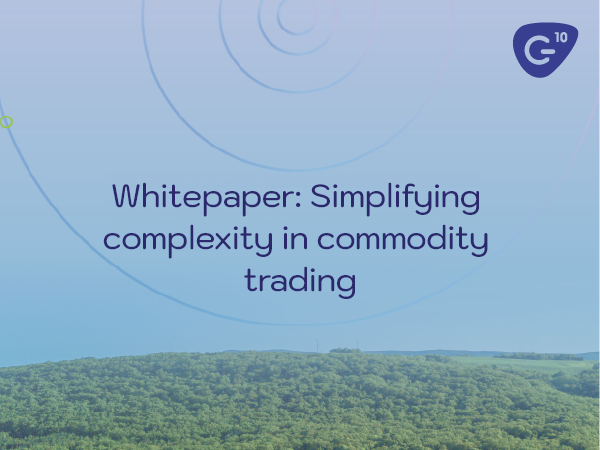Organisations considering a CTRM or commodity management implementation need their technology vendor to understand their business so that they can ensure this complex technology is set up in the best way for their own purposes.
Complexity is a vital component of these systems – commodity management usually involves several software systems used by different team members that all need to coordinate and accurately reflect the real-world situation. However, a strategic partnership shouldn’t just cover the implementation period – there is far more value to be gained from your technology when the people who know your business best work with the technology providers to keep its functionality in line with the best business use case.
Implementing for unique use cases
Even organisations that trade or process the same commodities can have different processes for doing so, and different means of creating their own competitive advantage. And many organisations work with multiple commodities or across different offices, which they need their software to reflect. They are also likely to use different technologies; for example, Gen10 integrate with the wide range of different ERP systems that our clients choose.
For commodity management software, it is important to work with vendors during the implementation to ensure your software matches your operations. For example, Gen10’s CommOS includes automated workflows, tasks and document creation that can all be adapted to your document formats and processes during your implementation. Working closely with the software vendor during implementations means that your software works around your optimal processes, rather than your people working around your software.
Reporting is constantly changing
Reporting is another area where every business, and every individual, is unique. Whilst regulators may have the same demands on different companies, internal reporting structures can vary significantly. Good commodity management systems such as CommOS allow users to create the dashboards they need for their own role, as well as more complex reports and include integrations with BI software.
Even with all these options, the most effective way to create new reports can be to work with the technology provider. For example, when clients need particularly complex automated reports, or their operations change significantly, we work with them to create reports that better serve their purpose. Developing the most relevant reports begins during the implementation, but is an ongoing project that constantly changes alongside the business.
The market is also changing
Because the market is ever-changing, commodities businesses need to be evolving and adapting too. When low margins were the main challenge in commodity trading, the focus was on efficiency, and now that supply chain and shipping disruptions are causing major delays and hurdles, many businesses are shifting their focus to creating adaptable, resilient supply chains.
As business processes change, supporting technologies need to change too. Having software that can adapt to support compliance and automate your new processes means that the software itself needs to be flexible. Your software partners also need to work with you on an ongoing basis to understand how your processes are changing and how they may change in future so that you can be at the leading edge of market development.
The other area where business needs can change suddenly is within the technology ecosystem. Commodity traders and supply chains often use several software systems to manage different parts of their operations. These systems need to integrate and share information with each other to be truly effective, which means that as you implement or improve one system, if you are close strategic partners with another vendor, they can ensure the system integrations are well-optimised and that you continue to get the best performance out of your technology ecosystem as a whole.
What this means for you
Working with technology providers as part of an ongoing strategic partnership therefore has a wide range of benefits for your organisation. It not only allows your technology provider to keep adapting their system for your ideal use case, but also means that you have a greater input into their ongoing product development and new features.
A strong partnership means you can continue to improve how your software supports your real-world processes as they change, and that your software itself is also constantly improving. It means that you can maintain agility as your organisation grows and can stay ahead of the competition in an ever-changing and uncertain market.
At Gen10, we think it’s important to form long-lasting strategic partnerships with all our clients so that they continue to receive the best results throughout their entire journey with Gen10.
Want to read more?
Subscribe now for monthly updates
By submitting your details you agree that we can store your data and communicate with you. You can opt out of these communications at any time. Read all in our Privacy Policy.



